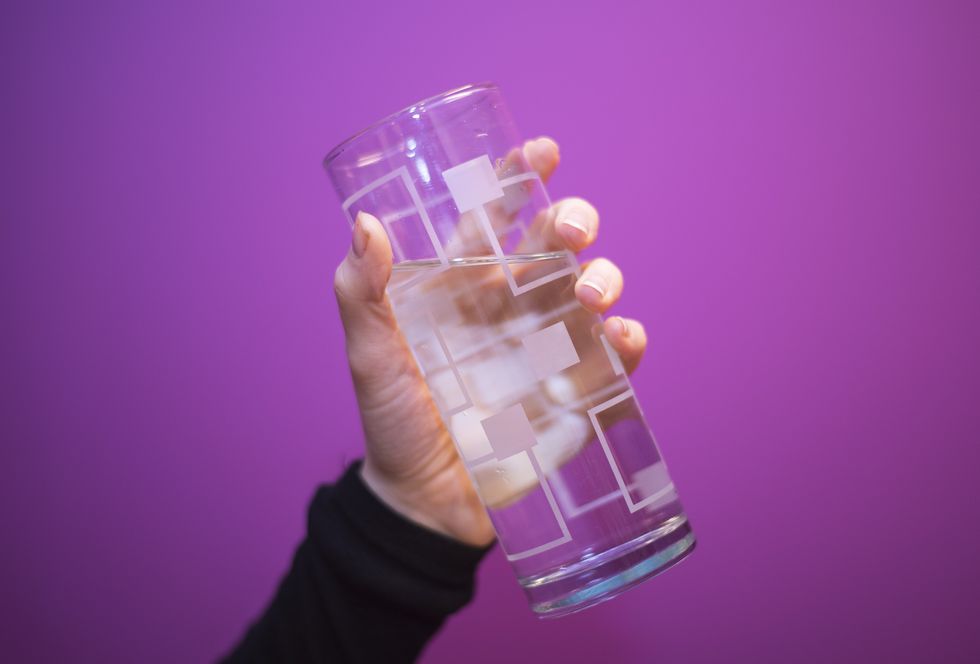Britons told how much water they should drink every day to 'help reduce the risk' of dementia

A doctor shared how much water people should drink every day to reduce their chances of developing dementia
Don't Miss
Most Read
There are many risk factors that increase a person's chances of developing dementia. Some of these are unavoidable, such as gender, age and ethnicity.
However, there are some lifestyle changes people can make that could reduce their risk of eventually suffering from the syndrome, such as drinking two litres of water every day.
GP at The London General Practice, Dr Angela Rai, spoke to GB News about the steps people can take to reduce their chances of having dementia.
The expert advised: "To help reduce the risks, exercise your mind and body, reduce your alcohol intake, follow a nutritious diet, drink two litres of water a day, reduce your sugar consumption, stop smoking, aim for six to eight hours of good quality sleep a night, socialise and reduce stress."
Do you have a health story you'd like to share? Contact our team by emailing lifestyle@gbnews.uk.

Your water drinking can help you reduce your risk of dementia
|GETTY IMAGES
A study published in the National Library of Medicine agreed that staying hydrated may reduce your chances of getting the syndrome, with research showing that dehydrated people are at higher risk for dementia.
In a similar vein, the study found that individuals with dementia are at higher risk for dehydration.
Alzheimer's Drug Discovery Foundation explained: "The adult human body contains around 60 per cent water. All the cells in the body, including our brain cells, depend on this water to carry out essential functions.
"Therefore, if water levels are too low, our brain cells cannot function properly, leading to cognitive problems."
When a dehydrated person is completing a cognitively engaging task, their brain appears to work harder. In younger adults, this effort can manifest in tiredness and a change in mood.
However, in populations with less cognitive reserve - like the elderly - this can result in declining cognitive performance.
In addition to drinking plenty of water, Britons can make other lifestyle changes to reduce their chances of developing dementia.
According to one doctor, over 65s should "completely and permanently eliminate alcohol from their diet" to cut their risk of health issues. Another advised that a particular hot drink could reduce your risk of developing dementia.
As for sleep, Britons were warned that they should aim for more shut-eye to avoid a dementia diagnosis.
LATEST DEVELOPMENTS

'To help reduce the risks, drink two litres of water a day'
|PA IMAGES
Dr Rai also offered some advice for people whose loved ones could be developing the syndrome.
She said: "Red flags include forgetting the names of close family and friends or details of recent events, but dementia is more than memory loss. Subtle symptoms may progress over time. There is noticeable short-term memory loss as well as confusion and lack of concentration which may lead to losing track of time.
"Memory loss can be caused by a number of medical conditions but if you are concerned that a family member's memory is not subtle age-related signs but something more sinister such as Alzheimer's dementia, it is important to take immediate action and see a doctor.
"More can be done at the early stages. They can do memory tests and blood tests to find the causes of memory impairment. Stay calm - it is important to get the facts right and get as much information as you can about the condition. Having a diagnosis can help with the management of the condition as well as future planning.
"Be calm and empathic - some people may realise they are suffering from symptoms whilst others may not. Listen to their concerns, take it seriously and seek expert advice. Access the right services to help optimize current brain health and reduce the risk of future cognitive decline."











